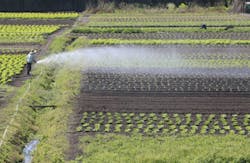Brazil ramps up fertilizer production amid growing agricultural demand
Brazil is one of the world's leading exporters of agricultural production but as much as 70 percent of the fertilizer it uses is imported. In a bid to reduce dependency on imported products, Brazil is set to invest billions of dollars in projects that will increase its domestic output of fertilizers, according to a new report by Brazilian industry association Fiesp.
Investments in the sector are expected to pick up significantly, following the announcement that the Brazilian government is preparing an incentive package for firms that pump capital into this segment of the industry. Thanks to these measures, new nitrogen, phosphorus and potassium (NPK) fertilizer plants are projected to reduce the share of imported products to 59 percent by 2018, the report says.
RELATED: Yara, BASF plan investment in US ammonia plant
This is unlikely to set a long-term trend, however, because both domestic and global demand for agricultural products is expected to continue going up, thus forcing Brazil to make up the difference with growing fertilizer imports once again. Fiesp has projected that the share of imported NPK fertilizers will reach 63 percent by 2023.
The industry association has estimated that domestic production of phosphorus will double by 2023, reaching 4.1Mt per year, cutting imports from 57.4 percent to just 22.2 percent. Meanwhile, nitrogen fertilizers will retain their position as most imported product over the forecast period. Currently, 93 percent of nitrogen fertilizer demand is met by imports, AgWeb reported.
